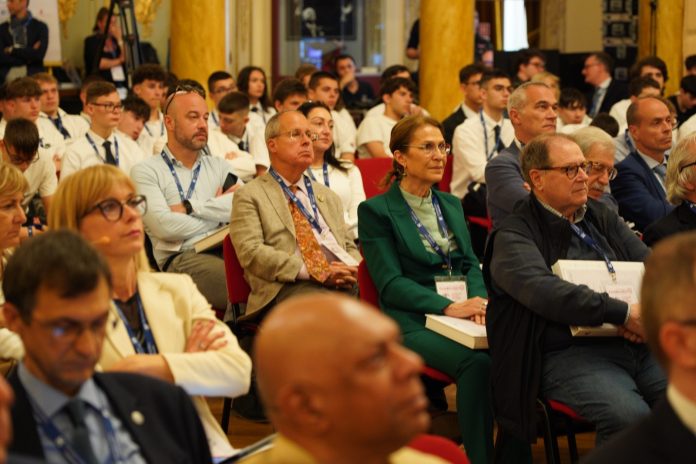by EH
In the heart of Italy’s northeastern region, a two-day event known as the Change Festival kicked off in Trieste, delving into the future of professions and the transformative power of artificial intelligence. The festival, now in its third edition, convened thought leaders, policymakers, and industry experts to dissect the evolving landscape of work and technology.
Organized by the Venice Giulia Chamber of Commerce in collaboration with The European House – Ambrosetti, the festival drew attention to the intersection of tradition and modernity, artisan craft skills, and the rise of artificial intelligence. With support from key stakeholders including the Municipality of Trieste and leading financial institutions, the festival underscored the urgency of adapting to the changing dynamics of the global economy.
Day one of the festival featured insightful discussions on the shifting paradigms of labor, emphasizing the need for continuous education and skills development to meet the demands of tomorrow’s workforce. Antonio Paoletti, President of the Venice Giulia Chamber of Commerce, set the stage by highlighting the pivotal role of education in preparing individuals for the jobs of the future.
“The themes chosen this year are of great relevance,” remarked Paoletti, “reflecting the profound changes unfolding in society, economy, and international relations. We must analyze the professions and trades of the future, anticipating the evolution of the labor market both locally and globally.”
Central to the discussions was the transformative potential of artificial intelligence (AI), portrayed not as a threat to jobs but as a strategic tool for enhancing individual productivity and business performance. Lorenzo Tavazzi, Senior Partner at The European House – Ambrosetti, emphasized the importance of integrating AI technologies into business processes to drive efficiency and innovation.
“AI should not be seen as a job destroyer,” Tavazzi explained, “but rather as a catalyst for unlocking new opportunities and creating professions that have yet to emerge. Finance and Information and Communication Technology sectors stand to benefit greatly from AI adoption, paving the way for enhanced operational efficiency and customer engagement.”
The festival also tackled pressing issues such as skills shortages and demographic shifts, underscoring the imperative of investing in human capital to sustain economic growth. Andrea Prete, President of Unioncamere, sounded the alarm on the widening skills gap and its impact on Italy’s competitive edge in the global arena.
“Skills shortages and demographic challenges are among the most pressing issues facing our country,” Prete emphasized. “We must equip our workforce with the necessary skills to thrive in the digital age, fostering innovation and entrepreneurship.”
As the day drew to a close, participants reflected on the need for collective action to navigate the complexities of a rapidly evolving labor market. Federico Ferrazza, Director of Wired Italia, underscored the importance of fostering a culture of innovation and adaptability to harness the full potential of emerging technologies.
“Change is inevitable,” Ferrazza asserted, “and it is incumbent upon us to embrace it with open minds and a readiness to adapt. By staying ahead of the curve, we can shape a future where technology serves as a catalyst for positive change.”
As the Change Festival enters its second day in Gorizia, discussions are set to delve deeper into the geopolitics of algorithms and the role of AI in shaping global dynamics. With a lineup of distinguished speakers and thought-provoking sessions, the festival promises to offer valuable insights into the future of work and technology.





























